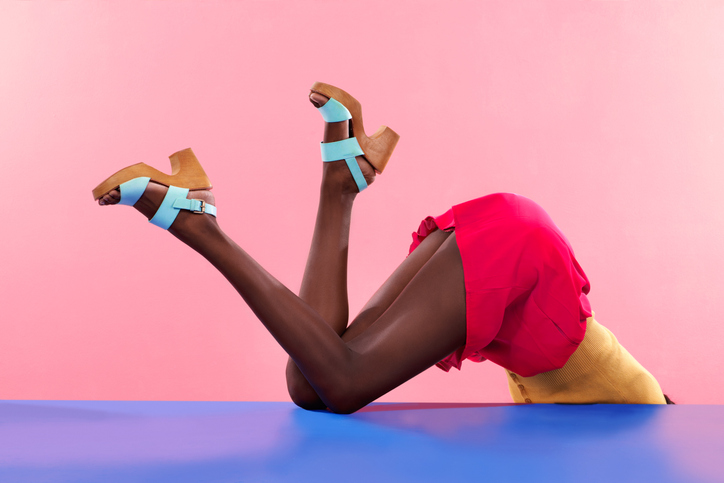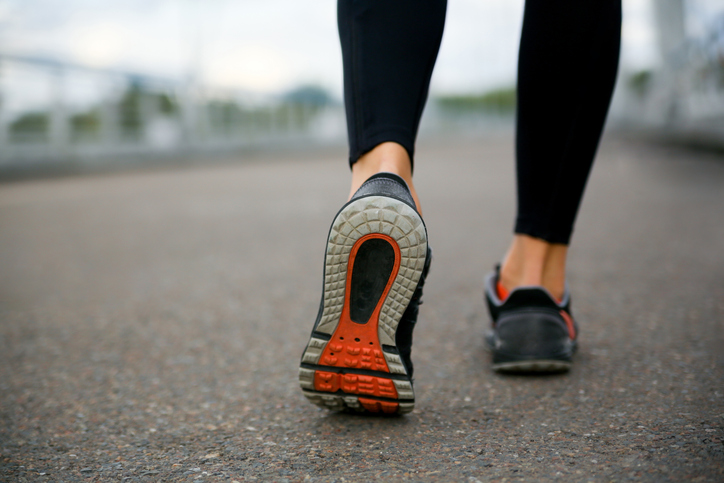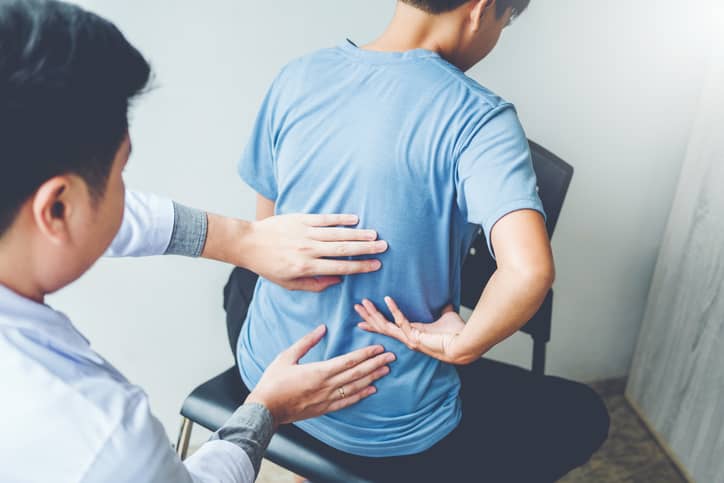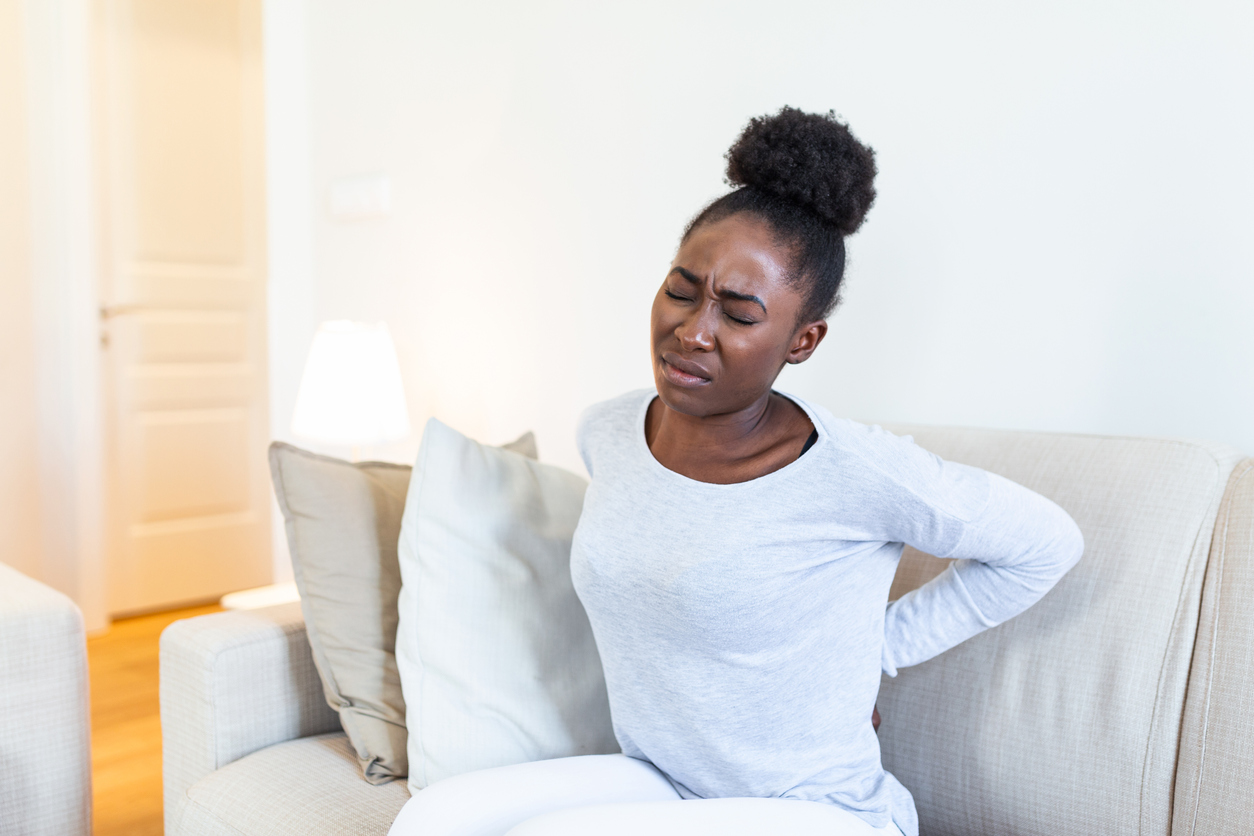What you wear on your feet can affect your whole body – after all, your feet carry your weight whenever you walk, run or dance. Shoes that are the wrong design or fit can cause poor walking and posture, and even minor injuries – all of which can impact your back.
So if you’re looking for the root cause of back pain, you may want to start with your feet. Read on to discover 4 ways your shoes could be to blame for your back pain, and what you can do about it.
High heels are giving you poor posture
It may be time to ditch your heels. Poor posture can create muscle tension, putting a strain on muscles and soft tissues, and causing pain.
A common posture mistake when standing is to stick your bottom out, which creates more of a curve in your lower back (sometimes referred to as ‘Donald Duck’ posture).
And what contributes to this way of standing? You guessed it: wearing high heels. Your stilettos may very well be causing strain and muscle tension, which can make back pain worse.

Your shoes aren’t supporting your body
Shoes that don’t support you in the right way can cause your body’s position (alignment) to be wrong, and this can affect your feet, knees, hips and back. If you’re experiencing pain in these areas, insoles may be recommended.
Insoles are supportive pads that you put in your shoes to improve the alignment of your feet. They should be used in shoes with a strong base, and high heels or slip-ons should be avoided – trainers or other shoes with a fastening are best.
Your footwear is making an existing condition worse
Wearing the wrong shoes can aggravate other conditions that cause back pain. For example, fallen arches – where your feet press flat on the ground, rather than being slightly arched – can be related to back pain.
Another condition that can be linked with back pain and footwear is a type of arthritis called ankylosing spondylitis. It affects the joints in your back, but can also affect your heels, causing pain and inflammation.
If you think your shoes are affecting an existing condition and playing a part in your back pain, speak to your doctor or a physiotherapist about footwear or insoles that could help.
Your shoes are stopping you from exercising
A lack of activity often plays a part in back pain. Sitting in one position for a long time – in an office chair, for example – is a common trigger, and regular exercise is recommended to help reduce your risk of back pain.
With this in mind, it’s important to have footwear that will support you in keeping active, without causing injury. Next time you buy a pair of shoes, try the following:
- have your feet measured by a fitter, to make sure you’re wearing the right size
- try on shoes while wearing the socks you normally wear
- if your feet aren’t the same size, buy shoes that fit the larger foot
- look for shoes that are light, hard-wearing and flexible
- avoid shoes that feel like you need to ‘break them in’ – they should be comfortable
Looking after your feet can also help you care for your back, and finding the right shoes is a good place to start. But speak to a doctor or physiotherapist if your back pain persists.

Key points
- high heels can affect your posture, which may lead to back pain
- insoles can help to align your body correctly and ease back pain
- the right footwear can help with certain conditions, such as flat feet or arthritis
- it’s important to have comfortable, supportive footwear for exercise






